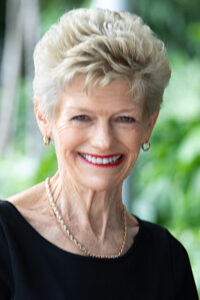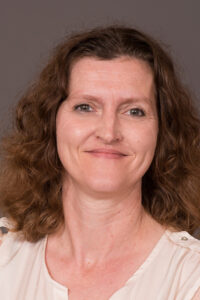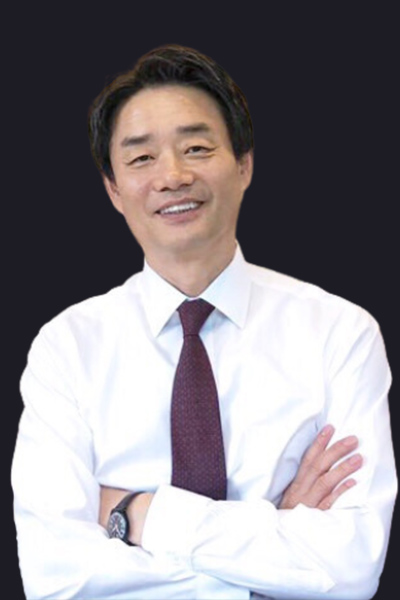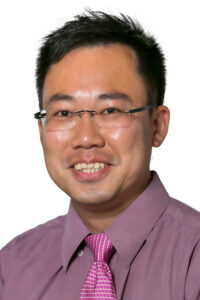 Lyn D. English
Lyn D. English
Professor of STEM Education/Mathematics Education
School of Teacher Education and Leadership
Queensland University of Technology, Australia
Lyn English is Professor of mathematics education and STEM education at the Queensland University of Technology, Australia. Her areas of research include mathematics/STEM education, ways of thinking in integrated STEM-based problem solving, mathematical modelling, engineering education, and statistical reasoning. Her research has been supported for many years by grants from the Australian Research Council. Professor English is a Fellow of The Academy of the Social Sciences in Australia, and is founding editor (1997) of the international journal, Mathematical Thinking and Learning (Taylor & Francis). She was awarded the Mathematics Education Research Group of Australasia Career Research Medal in 2012, and the University Vice Chancellor’s Award for Excellence in Research in 2015.
Keynote Presentation by Lyn D. English
Ways of Thinking in STEM-based Problem Solving
This presentation will argue that traditional notions of problem solving are outmoded, highlighting the need for more future-oriented approaches. Compelling evidence for reviewing and restructuring school problem-solving experiences can be found in the ill-conceived ways in which society dealt with Covid-19. A focus on ways of thinking in dealing with unforeseen problems has been lacking in education, despite an OECD report warning 13 years ago that “Education today is much more about ways of thinking which involve creative and critical approaches to problem-solving and decision-making.” The presentation will address this gap by examining various modes of thinking with-in STEM-based problem solving across the primary and middle grades. Consideration will be given to design and design-based thinking, systems thinking in dealing with complexity, critical and philosophical thinking, and adaptive and innovative thinking. In conjunction with fostering disciplinary and interdisciplinary concept development, ways of thinking can promote students’ competence in undertaking STEM-based investigations. Design-based thinking, for example, is increasingly prevalent in STEM and in society more broadly. Appropriate problem experiences can facilitate students’ learning about design and through design, with the former targeting the iterative processes of designing, and the latter, STEM knowledge application and development. Examples of investigations encouraging different ways of thinking across primary and middle grades will be explored, covering topics in mathematics education and STEM education more broadly, such as, mathematical representations, models and modelling, scheduling, measurement and geometry, spatial reasoning, coordinates, statistics, and earth science including energy sources.
Pre-conference Workshop by Lyn D. English
Exploring and Developing STEM-based Problems that Challenge Students’ Thinking
This International STEM Education workshop will comprise four components as follows:
- a brief review of traditional problem solving where problems tend to be closed, have only one correct answer, and require the application of previously taught procedures. These problems tend not to promote different ways of thinking or encourage development of new concepts.
- a brief consideration of why traditional problem solving is inadequate for today’s rapidly changing world.
- an overview of different ways of thinking, to be addressed more fully in the plenary.
- exploration of interactive STEM-based problems that encourage both disciplinary knowledge growth and application, and different ways of thinking. It is envisaged that participants will engage in working a sample of such problems, together with designing their own examples. Included in this component will be shared ideas on assessing students’ responses.
If possible, it would be helpful if participants could bring samples of problems implemented in their classrooms/school systems. These could be explored during the workshop and adapted to encourage more challenging problem solving and thinking skills.
 Gillian Roehrig
Gillian Roehrig
Professor of STEM Education
University of Minnesota, USA
Dr. Roehrig is a professor of STEM Education at the University of Minnesota. Her research explores issues of professional development for K-12 science teachers, with a focus on implementation of integrated STEM learning environments and induction and mentoring of beginning secondary science teachers. Her work in integrated STEM explores teachers' conceptions and implementation of STEM, curriculum development, and student learning in small groups during STEM lessons. She has received over $50 million in federal and state grants and published over 120 peer-reviewed journal articles and book chapters. She is a former president of the Association for Science Teacher Education and the Immediate Past President of NARST.
Keynote Presentation by Gillian Roehrig
Gender Equity Related to Integrated STEM in K-12 Classrooms
Recent educational reforms in the United States promote integrated science, technology, engineering, and mathematics (STEM) as a means of remaining globally competitive and advancing the knowledge and thinking skills of all students (National Research Council, 2012). However, despite efforts to improve access and quality of STEM education, women continue to be underrepresented in STEM fields (National Science Foundation, 2017). Given the prevalence of small group activities in K-12 STEM instruction, it is important to understand how students engage in epistemic discourse as they develop design solutions to real-world problems and engage in authentic STEM practices, parallel to those of STEM professionals. Given issues with gender equity in STEM, it is particularly important to consider the engagement of girls in STEM discourse and the impact on their developing STEM identities.
Pre-conference Workshop by Gillian Roehrig
Characteristics of High Quality Integrated STEM Curriculum
In this workshop, participants will learn about the characteristics of quality integrated STEM curriculum through the K-12 Integrated STEM Framework (Roehrig et al., 2021). This framework builds upon the extant integrated STEM literature to describe seven central characteristics of integrated STEM: (a) centrality of engineering design, (b) driven by authentic problems, (c) context integration, (d) content integration, (e) STEM practices, (f) twenty-first century skills, and (g) informing students about STEM careers. The integrated STEM framework is intended to provide more specific guidance to educators about the curriculum development and implementation. The framework will be illustrated by engaging participants in an exemplar integrated STEM curriculum. Participants will engage in some of the hands-on activities and reflect on the activities using the Integrated STEM Framework.
 Jinwoong Song
Jinwoong Song
Professor of Physics Education
Seoul National University, South Korea
Jinwoong Song is a professor of physics education at Seoul National University (SNU), the director of SNU Teacher Education Innovation Center (TEIC), and a fellow of the Korean Academy of Science and Technology (KAST). He received his BSc in physics and MEd in science education from SNU, and his PhD in science education from King’s College London in 1990. He has been actively engaged with international collaborations for establishing EASE (East-Asian Association for Science Education) as its 2nd president and APSE (Asia-Pacific Science Education) journal as its 1st editor-in-chief. Along with his life-long work with Korean Association for Science Education (KASE), he has served for several national-level policy making for the innovations of Korean science education, including Science Core Schools, 2015 National Science Curriculum, and Korean Science Education Standards (KSES). With ongoing academic interests in the interplay between science education and HPS (the history and philosophy of science), his current research interests cover science curriculum, the nature of science / physics, East Asian science classroom culture, science classroom creativity, science as wisdom, and the history and philosophy of science education.
Keynote Presentation by Jinwoong Song
Separately and Together: The Dilemmas of STEM Education
Today, STEM education has become an irreversible global trend. It has become a ‘slogan’ for reforming current school and university education in both so-called developed and developing countries. STEM education is similar to the STS education of the 1980s and 1990s in that it emphasizes its integrated approaches and social contexts, but is different in that its core subjects go beyond science to include mathematics and engineering. In addition, the dilemmas surrounding the nature and methods of STEM education still continue. The first dilemma is whether the focus of STEM education should be on expanding its scope in curriculum or reforming its essential methods in teaching. The second dilemma is that mathematics, science, and engineering, the components of STEM, have not only common features but also significant differences in their natures. If we emphasize the common features, it is easy to miss the nature of individual disciplines, and vice versa. The third dilemma is that the nature of each individual discipline itself has been fundamentally changing through the second half of the 20th century. What STEM educators think of as their respective fields of study is no longer consistent with that of the 21st century. In this presentation, I will look back on the historical developments of emphasizing the social relevance of science in school education, compare the features of STEM disciplines, and explore its practical future direction by focusing on the ‘participation and action’ dimension of STEM education.
Pre-conference Workshop by Jinwoong Song
Developing informal STEAM programmes for scientific engagement and practice: Lessons from the 'Doing Science, the Gangnam Style' project
In many countries, including Korea, STE(A)M education activities are still limited to the school education environment. As modern society changes into a life-long learning society, the scene of STE(A)M education also needs to take place in the context of non-formal education settings. In particular, in a future society where 'scientific participation and practice' is emphasized more and more, a key question becomes what kind of STEM learning experience not only for students but also for citizens need. In this workshop, how to develop an informal STEAM education program for 'scientific participation and practice' is going to be discussed, based on the experience of operating 'Doing Science, the Gangnam Style' Project, a university-community collaborative STEAM education program for elementary and middle school students and the general public that has been running since 2022. We plan to share our experiences of and lessons from the problems encountered when developing and operating. Participants will have the opportunity to explore appropriate topics and methods of STEM education programs that start from the context of their own local community and connect to global STEM issues.
 Choy Ban Heng
Choy Ban Heng
Assistant Professor in Mathematics Education
National Institute of Education,
Nanyang Technological University, Singapore
Dr. Choy Ban Heng is an Assistant Professor in Mathematics Education at the National Institute of Education, Nanyang Technological University, Singapore. As a recipient of the NIE Overseas Graduate Scholarship, Dr. Choy received his PhD from the University of Auckland, New Zealand, in 2015. He is currently one of the co-Heads for meriSTEM@NIE, a Multi-centric Education, Research, and Industry STEM centre in NIE. As a mathematics educator, Dr. Choy's research focuses on developing mathematics teachers' expertise in noticing critical mathematical and instructional details during the planning, enactment, and review of lessons. His other research interests include teacher professional learning, mathematics instructional practices, mathematics task design, and more recently STEM education. He currently serves as an Associate Editor of a new STEM education journal published by Brill. Besides being the principal and co-principal investigators of several research projects, Dr. Choy was also the leader for a STEM teacher development project in Thailand funded by Temasek Foundation.
Keynote Presentation by Choy Ban Heng
Noticing Affordances for Developing Integrated STEM Mindsets through "Day-to-Day Classroom" Mathematics Tasks
There have been calls for Science, Technology, Engineering, and Mathematics (STEM) educators to design learning experiences around authentic integrated STEM tasks—those that involve two or more disciplines—to empower our learners to develop productive mindsets or habits of mind necessary for navigating through a highly complex and uncertain world. Much of our efforts revolves around designing integrated STEM tasks that centre around solving a complex persistent problem, developing and enhancing existing solutions, or designing for specific users in different contexts. Designing and implementing such integrated STEM tasks poses several challenges for teachers and such approaches often engender a polarising discourse between integrated STEM tasks and "day-to-day classroom" tasks. This gap between integrated STEM tasks and "day-to-day classroom" tasks is even more evident in mathematics classrooms. With the aim of developing productive integrated STEM mindsets, I wonder if we can challenge this limiting thinking and re-envision how affordances of "day-to-day classroom" mathematics tasks can be harnessed differently. In this presentation, I will add to this ongoing conversation by considering and illustrating how these "day-to-day classroom" mathematics tasks can complement integrated STEM tasks to make STEM learning an integral part of everyday mathematics learning experiences.
